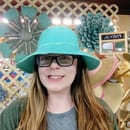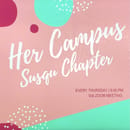For those who may not know, someone who identifies as asexual is someone who experiences a lack of sexual attraction. There is a spectrum of asexuality and every person is a little different. Some asexual individuals feel no sexual attraction, ever, while others sometimes do. There are many stereotypes out there for this sexuality. I hear it all the time: asexual people are just celibate, haven’t found the right person yet, are broken, aren’t telling the truth. All of these are just stereotypes! Asexual people are valid and real. I’ve been searching for asexual representation for a long time. There are now some examples of this in the media and on the Internet.
Just because someone is asexual, that doesn’t mean they don’t want a relationship. Asexual people are more in touch with the emotional than the physical side of relationships. Again, some asexual individuals may never want to be involved in a romantic relationship and that’s entirely okay. However, don’t ever assume that your asexual friend doesn’t experience romantic feelings! A romantic connection is separate from physical attraction. An excellent example of asexual representation comes from Amanda Lovelace, one of my favorite contemporary poets. She talks openly about her asexuality on Twitter. Her poems also are appealing to someone who identifies as asexual, but what’s amazing is that anyone could read her writing and relate to it. What I think is wonderful about Lovelace is that she is one of the few asexual individuals I have seen who is married. Too many people assume that asexual people don’t want to have families, but this isn’t always true. Lovelace is a fantastic example of someone who has defined what asexuality means to them.
For the sake of context, asexuality wasn’t even added to a clinical or scientific sexuality chart until 1981 with the Storms Sexuality Axis (SSA). This was the first time asexuality was used in an academic sense and compared to other sexual identities, such as heterosexuality. I realize that understanding asexuality can be difficult. Understanding any sexuality other than yours is a challenge. When I came out to family and friends, one way of describing it that helped was explaining that I couldn’t have one night stands. Being asexual makes it impossible for me to be in any physical relationship without an emotional attachment to the person. Sometimes, even when the emotional attachment is there, I still feel no sexual attraction to the person. Once again, I want to add that not everyone experiences asexuality the same way. Hooray for everyone out there who identifies as asexual and is living their best life!
Another recent example of asexual representation in the media occurred on the Netflix TV show Sex Education. For those of you who haven’t seen season two yet, I won’t give away any major plot spoilers. During episode four of season two, a minor character in the show, Flo, goes to speak with a counselor. Flo feels confused because, unlike her hormonal teenage classmates, she doesn’t ever want to have sex. In a historic moment in television history, the counselor doesn’t dismiss Flo’s hesitations and instead educates Flo on asexuality. I love how the counselor in this scene doesn’t try to change Flo’s mind or tell her she’s just confused. Instead, the counselor sits and listens, and then informs Flo with compassion about the issues. Not only is this a heartwarming moment, but it validates asexual experiences. Asexual representation on television still has a long way to go, but this is an excellent start!
For anyone who would want additional resources on asexuality, here are some useful websites:
https://www.thetrevorproject.org/trvr_support_center/asexual/



